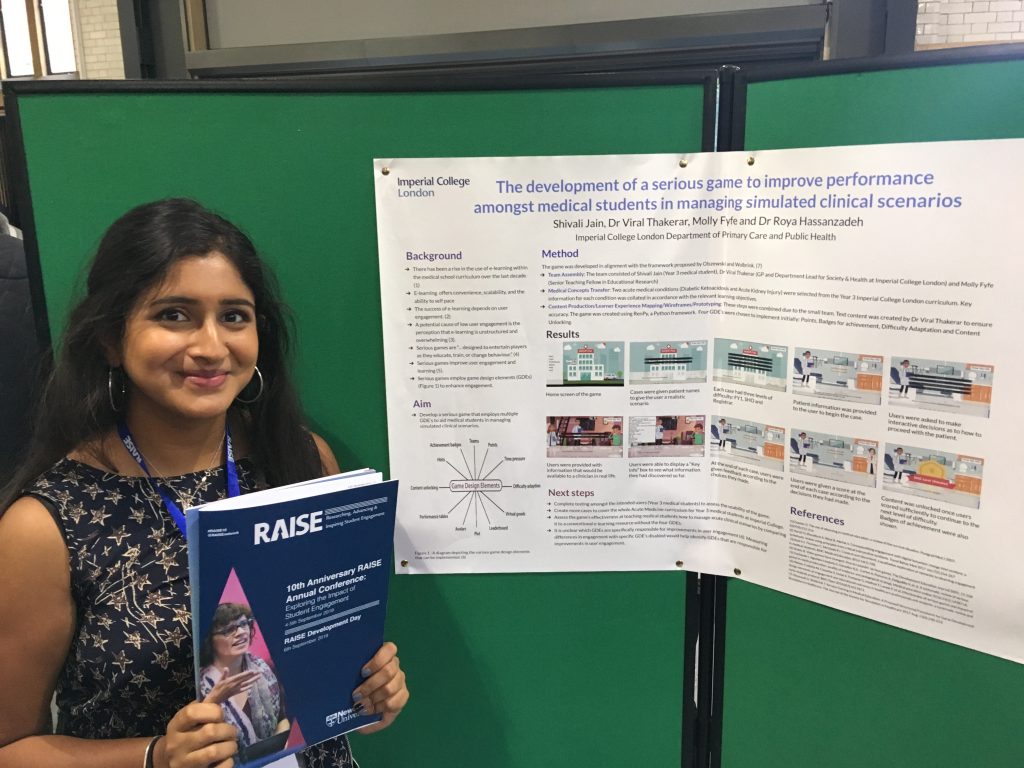European Conference on Technology-Enhanced Learning, Delft
Vily Papageorgiou, PhD student, Centre for Higher Education Research and Scholarship
On 16-19 September 2019, I attended the 14th annual European Conference on Technology-Enhanced Learning (EC-TEL) which took place at the University of Technology in Delft, The Netherlands. This year’s theme was ‘Transforming Learning with Meaningful Technologies’. The aim of this conference was to engage researchers, practitioners, educational designers and developers, university leaders, entrepreneurs and policy makers to address current challenges and advances in the field of educational technology. In this conference, I had the opportunity to present my PhD project at the Doctoral Consortium via a short presentation as well participate in the poster/demo session where I discussed my work with researchers and practitioners in the field. My PhD project will explore the pedagogical decisions educators and university professional staff take when designing for credit-bearing online learning as well the factors that influence their decision-making. It will also seek to understand how the experience of designing for credit-bearing online learning may inform educators’ face-to-face teaching practice.

My engagement with the conference started in June 2019 when I submitted a short paper with my initial PhD plan. This was a very useful exercise as it enabled me to articulate my research and present it concisely within a limited space. Then, I received feedback from two senior researchers in the TEL domain as well as four additional reviews from other PhD students. At the same time, I had the opportunity to engage with and review others investigators’ work to provide them with feedback and understand their PhD projects. The latter enabled me to be involved in interesting discussions about the strengths, limitations and implementation aspects of their research designs. That was a valuable experience in this initial stage of my PhD journey as the feedback I received not only strengthened several elements of my research but also prompted further thinking on aspects that may need more consideration. As such, I would highly recommend to early stage researchers to engage with similar activities and present their work early on their PhD.
My overall experience at this conference was great. The conference consisted of a wide range of sessions including but not limited to interactive half day workshops, poster & demo sessions, keynote presentations, research presentations and after conference networking events. Key areas of research included social learning & learning analytics, learning design, deep learning & prediction, learning behaviour in MOOCs, digital skills and competences, adaptive systems and gamification. This year there was a profound focus on data and learning analytics and their application in educational processes, decisions and evaluation. For example, several projects were looking into how data and learning analytics can predict learners’ behaviour and performance, support students’ learning (e.g. via personalised suggestions, enhanced student feedback at scale) and evaluate educational practice so that more informed pedagogical decisions are taken.
The two keynote presentations I attended were inspiring and provided food for thought on important aspects of the TEL domain. The first keynote by Geoff Stead, Chief Product Officer at Babbel, leading the digital learning experience team, focused on the role and structure of the different specialist teams to enhance cross-functional collaboration around product ideas and speed up the development cycle. It also highlighted the pedagogical and technological elements that this language learning application is based upon and proactive ways to collect users’ feedback to further enhance the learning experience.

The second keynote by Professor Rosemary (Rose) Luckin, Professor of Learner Centred Design at UCL Knowledge Lab, focused on the development of an Artificial Intelligence (AI) mindset with EdTech entrepreneurs. Similarly to the first keynote presentation, it was highlighted that partnership between educational stakeholders (e.g. educators, researchers, EdTech Developers, learners) is essential to build capacity. Professor Luckin provided an overview of the potential of AI to transform education and presented case studies of the work that she and her colleagues have been doing at UCL EDUCATE. The aim of this programme is to develop “an EdTech ecosystem which has evidence at its heart, understanding what truly works for learners and how to use technology to serve its users effectively”. It focuses on helping entrepreneurs in the education and training domains develop AI technologies to leverage their products/ services for the benefit of teachers and learners.

The conference was a great opportunity to learn about the latest research trends in the TEL sector, share and generate new ideas, get to know other people in my field and engage in debates. The Conference Proceedings can be found here for those interested in having a better look at the research presented.

